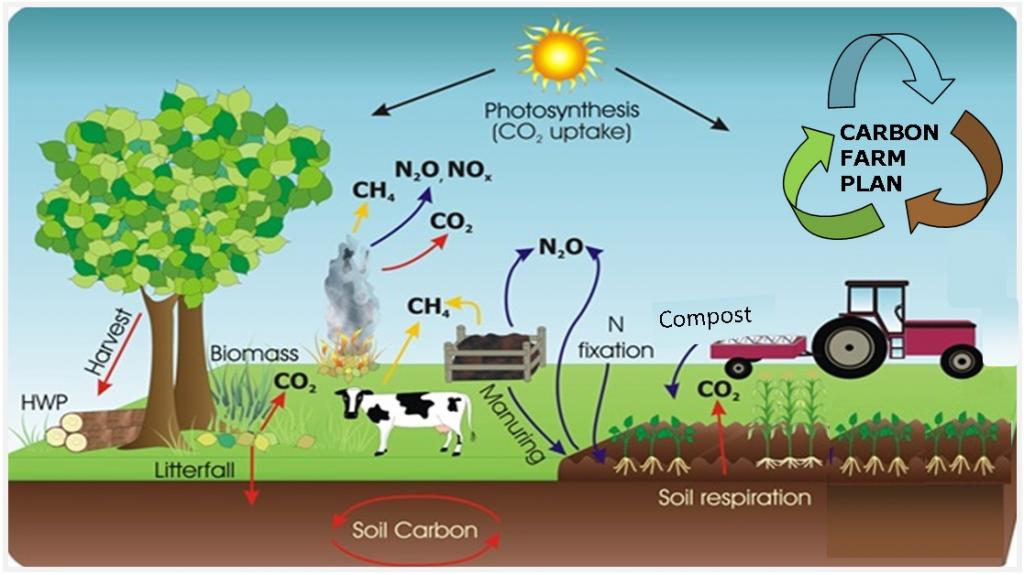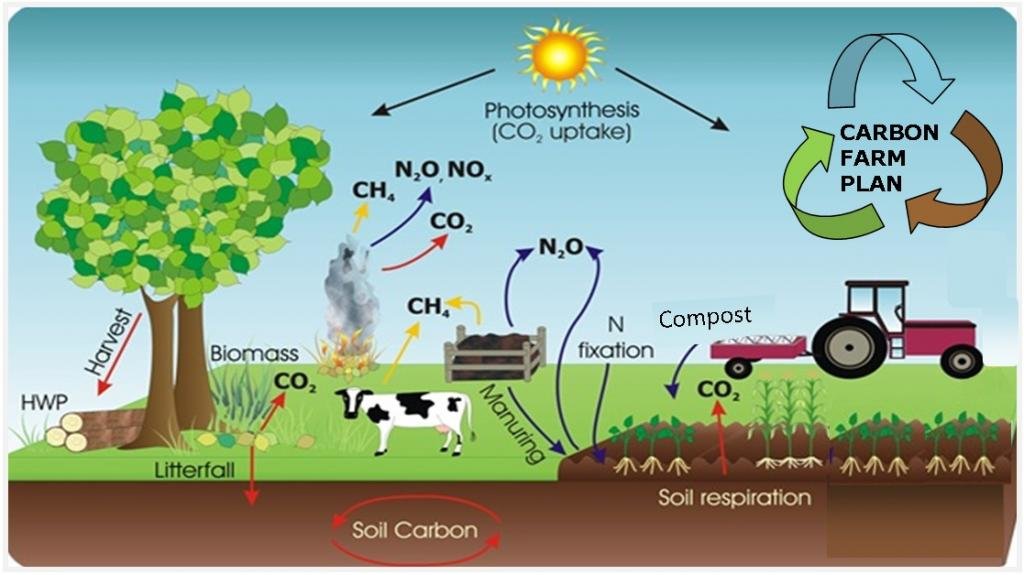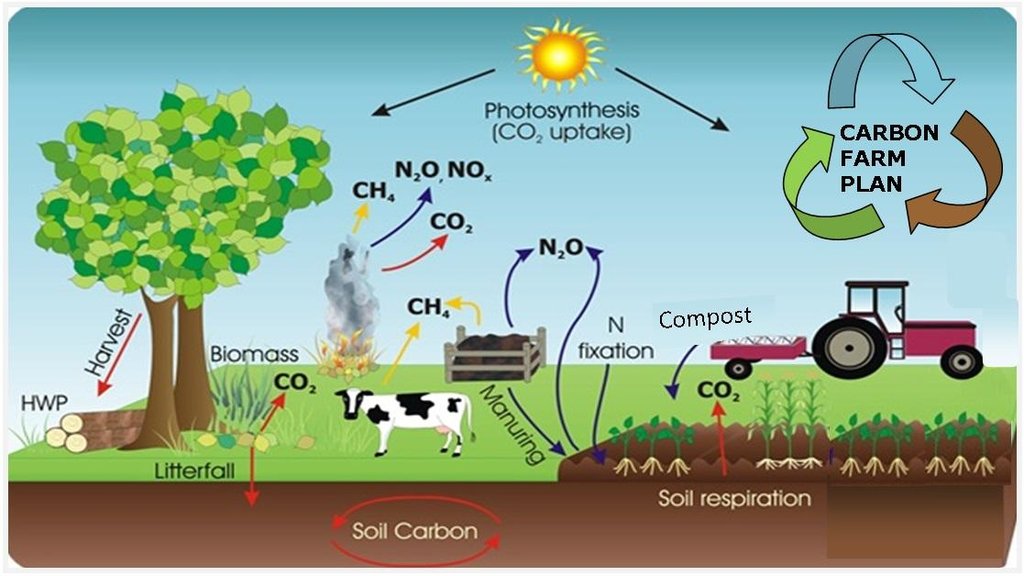Carbon farming [Italie]
- Création :
- Mise à jour :
- Compilateur : Nicola Dal Ferro
- Rédacteur : –
- Examinateur : Fabian Ottiger
Carbon farming
approaches_2607 - Italie
Voir les sections
Développer tout Réduire tout1. Informations générales
1.2 Coordonnées des personnes-ressources et des institutions impliquées dans l'évaluation et la documentation de l'Approche
Spécialiste GDT:
Morari Francesco
DAFNAE - University of Padova
Italie
Nom du projet qui a facilité la documentation/ l'évaluation de l'Approche (si pertinent)
Preventing and Remediating degradation of soils in Europe through Land Care (EU-RECARE )Nom du ou des institutions qui ont facilité la documentation/ l'évaluation de l'Approche (si pertinent)
University of Padova (UNIPD) - Italie1.3 Conditions relatives à l'utilisation par WOCAT des données documentées
Quand les données ont-elles été compilées (sur le terrain)?
05/05/2015
Le compilateur et la(les) personne(s) ressource(s) acceptent les conditions relatives à l'utilisation par WOCAT des données documentées:
Oui
1.4 Références au(x) questionnaire(s) sur les Technologies de GDT
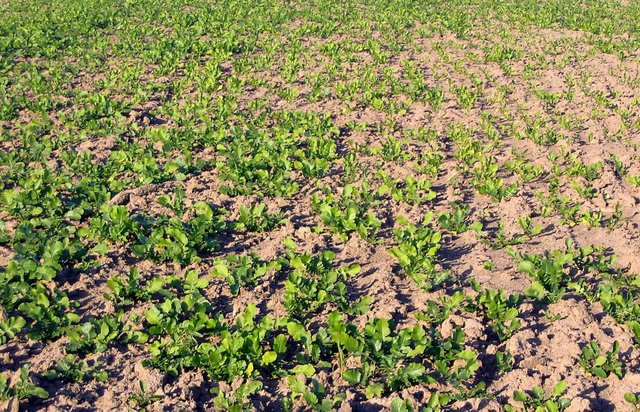
Root-oriented cover crops [Italie]
Cover crops with high root root growth capacity as a practice to improve soil quality
- Compilateur : Nicola Dal Ferro
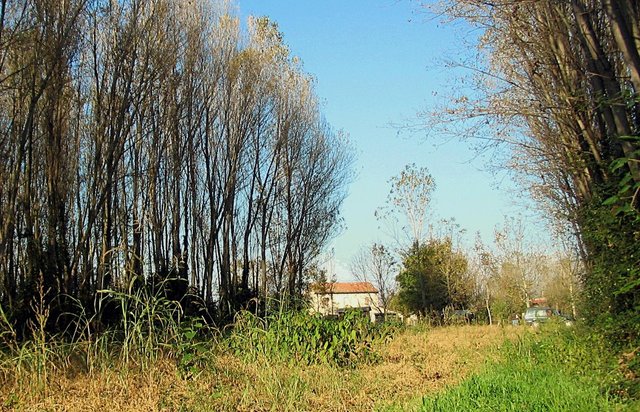
Agroforestry system [Italie]
Silvo-arable systems for production of annual crops on tree plots
- Compilateur : Nicola Dal Ferro
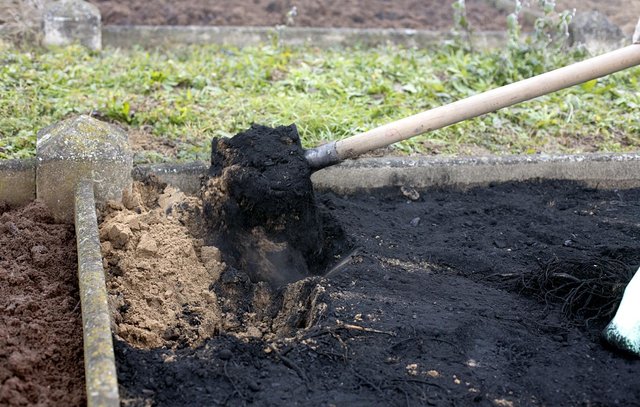
Biochar application as a soil amendment [Italie]
Application of fine-grained charcoal as an amendment to improve the soil quality and mitigate GHG emissions from croplands
- Compilateur : Nicola Dal Ferro
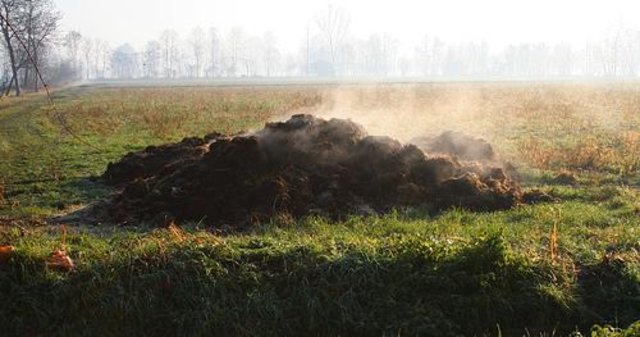
Re-introduction of organic amendments in croplands [Italie]
Re-introduction of biosolids to improve fertility of mineral soils
- Compilateur : Nicola Dal Ferro
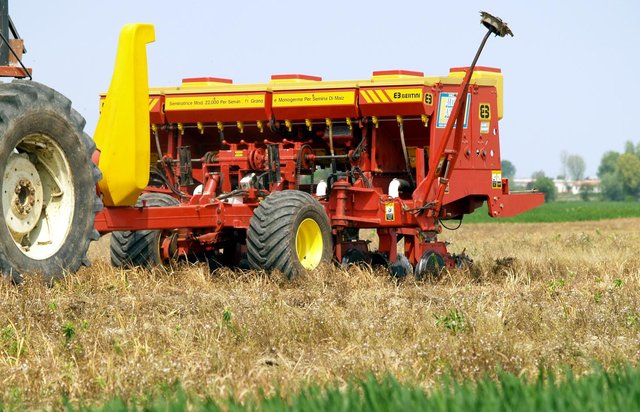
Conservation agriculture [Italie]
Sustainable crop production and residue management under no-tillage to improve soil fertility and increase environmental benefits
- Compilateur : Nicola Dal Ferro

Variable rate biosolids management [Italie]
Application of precision farming and variable rate application technology for spatial optimization of organic amendments use
- Compilateur : Nicola Dal Ferro
2. Description de l'Approche de GDT
2.1 Courte description de l'Approche
Managing land, water, plants and animals to meet the landscape restoration, climate change and food security.
2.2 Description détaillée de l'Approche
Description détaillée de l'Approche:
Aims / objectives: Carbon farming seeks to reduce emissions in its production processes, while increasing production and sequestering carbon in the landscape. Carbon farming in the Veneto region has never been applied yet, although it might be proposed as an integrated approach to manage agricultural lands.
Methods: Several strategies can be included in the carbon farming approach, e.g. conservation agriculture, cover cropping, manure application, precision agriculture etc. All these methods have the aim to improve the rate of CO2 removed from the atmosphere and converted to soil organic matter and plant materials. As a result, the final goal is the adoption of land management practices in which carbon gains exceed carbon losses.
Stages of implementation: Carbon farming initiative has never been adopted in Italy and in the Veneto region, although it has been proposed worldwide (e.g. Australia, US). Neverthless, it might be a new way to implement low-impact agricultural activities.
Role of stakeholders: Stakeholders may be involved in the evaluation of the best practices to reduce carbon emissions in the atmosphere as well to increase/maintain crop productivity.
2.3 Photos de l'approche
2.5 Pays/ région/ lieux où l'Approche a été appliquée
Pays:
Italie
Région/ Etat/ Province:
Veneto region
2.7 Type d'Approche
- fondé sur un projet/ programme
2.8 Principaux objectifs de l'Approche
The Approach focused on SLM only
Reduce emissions in the production processes while increasing production and sequestering carbon in the landscape
The SLM Approach addressed the following problems: The main problem to be addressed by this approach is the loss of soil organic matter and generally the loss of soil quality. Moreover, by adopting low-impact agricultural practices in the context of the Carbon Farming approach would favour a reduction in CO2 emissions.
2.9 Conditions favorisant ou entravant la mise en œuvre de la(des) Technologie(s) appliquée(s) sous l'Approche
normes et valeurs sociales/ culturelles/ religieuses
- entrave
Treatment through the SLM Approach:
disponibilité/ accès aux ressources et services financiers
- entrave
Some technologies need initial investment for their application
Treatment through the SLM Approach: Subsidies
connaissances sur la GDT, accès aux supports techniques
- entrave
Tchnical expertise and knowledge on several technolgies is requested
Treatment through the SLM Approach: Continuing education
3. Participation et rôles des parties prenantes impliquées dans l'Approche
3.1 Parties prenantes impliquées dans l'Approche et rôles
- exploitants locaux des terres / communautés locales
- enseignants/ élèves/ étudiants
- gouvernement local
Regional government of Veneto
- gouvernement national (planificateurs, décideurs)
- organisation internationale
EU
3.2 Participation des exploitants locaux des terres/ communautés locales aux différentes phases de l'Approche
| Participation des exploitants locaux des terres/ communautés locales | Spécifiez qui était impliqué et décrivez les activités | |
|---|---|---|
| initiation/ motivation | interactive | |
| planification | soutien extérieur | |
| mise en œuvre | soutien extérieur | |
| suivi/ évaluation | soutien extérieur | |
| Research | interactive |
3.4 Prises de décision pour la sélection de la Technologie/ des Technologies
Indiquez qui a décidé de la sélection de la Technologie/ des Technologies à mettre en œuvre:
- principalement les spécialistes de la GDT, après consultation des exploitants des terres
Expliquez:
This approach is not yet applied in Italy, but some experiences are from other countries (e.g. USA, Australia)
4. Soutien technique, renforcement des capacités et gestion des connaissances
4.1 Renforcement des capacités/ formation
Une formation a-t-elle été dispensée aux exploitants des terres/ autres parties prenantes?
Oui
Spécifiez qui a été formé:
- exploitants des terres
- personnels/ conseillers de terrain
Thèmes abordés:
Climate change, sustainable land management strategies, administrative aspects, project planning and implementation.
4.2 Service de conseils
Les exploitants des terres ont-ils accès à un service de conseils?
Oui
Spécifiez si le service de conseils est fourni:
- dans les champs des exploitants?
Décrivez/ commentez:
Name of method used for advisory service: Authorised advisory services, public and private; Key elements: Objectives , Project design, Administrative support
4.3 Renforcement des institutions (développement organisationnel)
Des institutions ont elles été mises en place ou renforcées par le biais de l'Approche?
- oui, modérément
Spécifiez à quel(s) niveau(x), ces institutions ont été renforcées ou mises en place:
- local
4.4 Suivi et évaluation
Le suivi et l'évaluation font ils partie de l'Approche? :
Oui
Commentaires:
bio-physical aspects were ad hoc monitored by land users through observations
bio-physical aspects were regular monitored by project staff through measurements
technical aspects were regular monitored by land users through observations
socio-cultural aspects were regular monitored by government through measurements
economic / production aspects were regular monitored by land users through observations
economic / production aspects were ad hoc monitored by project staff through measurements
no. of land users involved aspects were regular monitored by government through observations
management of Approach aspects were regular monitored by government through observations
There were several changes in the Approach as a result of monitoring and evaluation: The approach should be continuously updated after continuous monitoring
4.5 Recherche
La recherche a-t-elle fait partie intégrante de l’Approche?
Oui
Spécifiez les thèmes:
- économie/ marketing
- écologie
- technologie
Donnez plus de détails et indiquez qui a mené ces recherches:
Research institutes, government
5. Financement et soutien matériel externe
5.1 Budget annuel de la composante GDT de l'Approche
Si le budget annuel précis n'est pas connu, indiquez une fourchette:
- 100 000-1 000 000
Commentez (par ex. principales sources de financement/ principaux bailleurs de fonds):
Approach costs were met by the following donors: local government (district, county, municipality, village etc): 100.0%
5.2 Soutiens financiers/ matériels fournis aux exploitants des terres
Les exploitants des terres ont-ils reçu un soutien financier/ matériel pour la mise en œuvre de la Technologie/ des Technologies?
Oui
5.3 Subventions pour des intrants spécifiques (incluant la main d'œuvre)
- équipement
| Spécifiez les intrants subventionnés | Dans quelle mesure | Spécifiez les subventions |
|---|---|---|
| machines | en partie financé | |
| outils | en partie financé | |
- intrants agricoles
| Spécifiez les intrants subventionnés | Dans quelle mesure | Spécifiez les subventions |
|---|---|---|
| semences | en partie financé | |
| fertilisants | en partie financé | |
Si la main d'œuvre fournie par les exploitants des terres était un intrant substantiel, elle était:
- payée en espèces
6. Analyses d'impact et conclusions
6.1 Impacts de l'Approche
Est-ce que l'Approche a aidé les exploitants des terres à mettre en œuvre et entretenir les Technologies de GDT?
- Non
- Oui, un peu
- Oui, modérément
- Oui, beaucoup
By adopting an holistic approach that should integrate several aspects with the aim to imporve soil fertility, soil C and reduce CO2 emissions.
Did other land users / projects adopt the Approach?
- Non
- Oui, un peu
- Oui, modérément
- Oui, beaucoup
The approach has been adoipted in USA and Australia
Did the Approach lead to improved livelihoods / human well-being?
- Non
- Oui, un peu
- Oui, modérément
- Oui, beaucoup
By making the agricultural system more efficient
6.2 Principale motivation des exploitants des terres pour mettre en œuvre la GDT
- augmenter la rentabilité/ bénéfice, rapport coûts-bénéfices
- paiements/ subventions
- prestige, pression sociale/ cohésion sociale
- conscience environnementale
6.4 Points forts/ avantages de l'Approche
| Points forts/ avantages/ possibilités du point de vue de l'exploitant des terres |
|---|
| Improvement of soil fertility (How to sustain/ enhance this strength: Subsidies) |
| Points forts/ avantages/ possibilités du point de vue du compilateur ou d'une autre personne ressource clé |
|---|
| Reducing agricultural impacts on CO2 emissions as well as increasing the SOC content (How to sustain/ enhance this strength: Technical support ) |
6.5 Faiblesses/ inconvénients de l'Approche et moyens de les surmonter
| Faiblesses/ inconvénients/ risques du point de vue du compilateur ou d'une autre personne ressource clé | Comment peuvent-ils être surmontés? |
|---|---|
| SOC content in the short-term is difficult to quantify, thus restricting the abuility to demonstrate the positive impacts |
7. Références et liens
7.1 Méthodes/ sources d'information
- visites de terrain, enquêtes sur le terrain
- interviews/entretiens avec les exploitants des terres
7.2 Références des publications disponibles
Titre, auteur, année, ISBN:
The integration of biodiversity and climate change: A contextual assessment of the carbon farming initiative, Van Oosterzee P., 2012Carbon farming Iniitiative, Australian government - Dept. of Environment
Disponible à partir d'où? Coût?
climatechange.gov.au
Titre, auteur, année, ISBN:
Carbon farming Iniitiative, Australian government - Dept. of Environment
Disponible à partir d'où? Coût?
climatechange.gov.au
Liens et modules
Développer tout Réduire toutLiens

Root-oriented cover crops [Italie]
Cover crops with high root root growth capacity as a practice to improve soil quality
- Compilateur : Nicola Dal Ferro

Agroforestry system [Italie]
Silvo-arable systems for production of annual crops on tree plots
- Compilateur : Nicola Dal Ferro

Biochar application as a soil amendment [Italie]
Application of fine-grained charcoal as an amendment to improve the soil quality and mitigate GHG emissions from croplands
- Compilateur : Nicola Dal Ferro

Re-introduction of organic amendments in croplands [Italie]
Re-introduction of biosolids to improve fertility of mineral soils
- Compilateur : Nicola Dal Ferro

Conservation agriculture [Italie]
Sustainable crop production and residue management under no-tillage to improve soil fertility and increase environmental benefits
- Compilateur : Nicola Dal Ferro

Variable rate biosolids management [Italie]
Application of precision farming and variable rate application technology for spatial optimization of organic amendments use
- Compilateur : Nicola Dal Ferro
Modules
Aucun module trouvé


